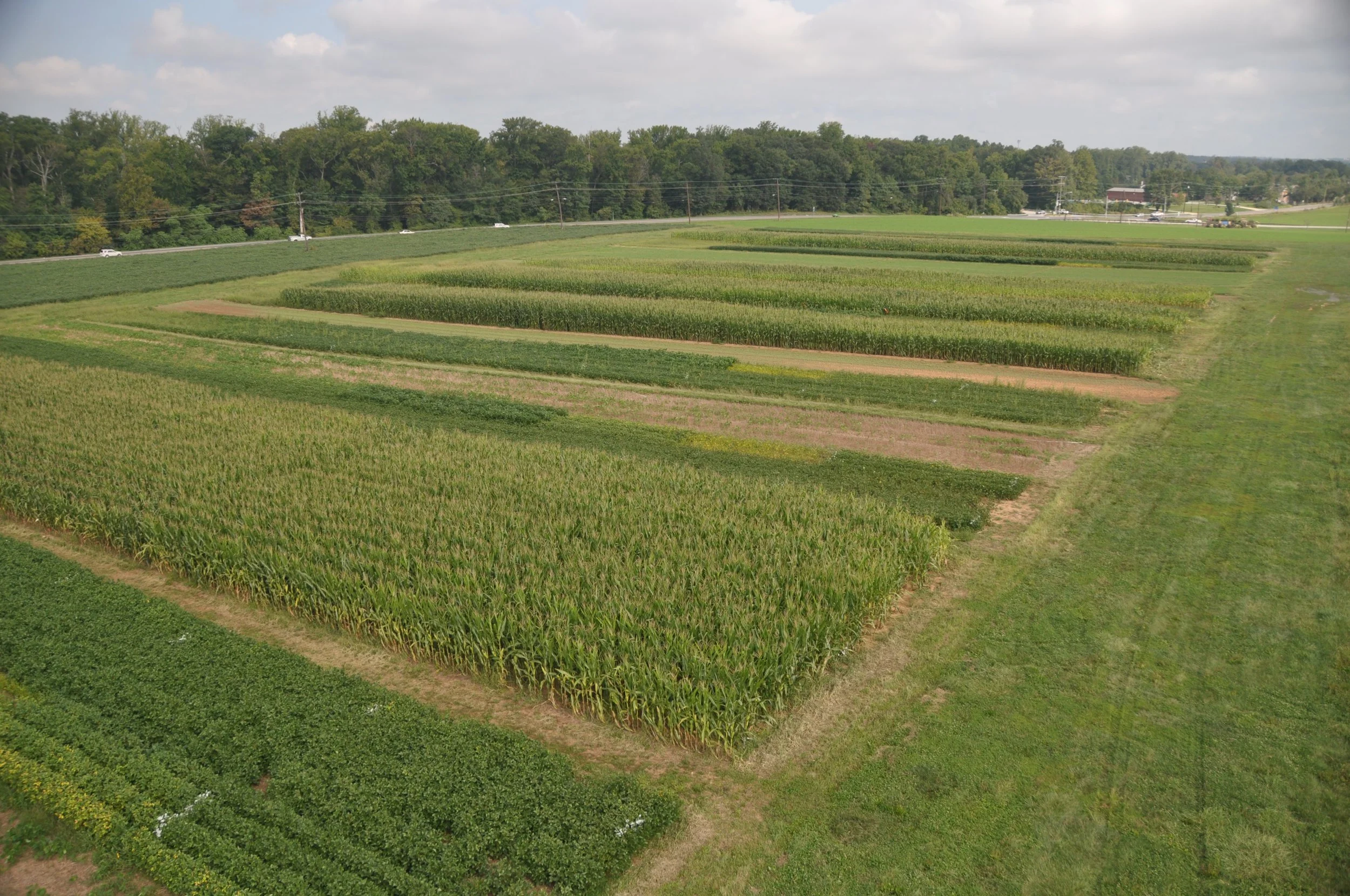Farming Systems Project
The Farming Systems Project was established at the United States Department of Agriculture Agricultural Research Service Beltsville Agricultural Research Center in 1996 by Laura Lengnick and colleagues. The experiment is a long-term comparison of five cropping systems that represent a continuum of production strategies from conventional to organic methods to address farmer-defined management and production barriers to the development and adoption of sustainable cropping systems in the mid-Atlantic region. The cropping systems were designed by a team of farmers, extension agents and scientists to take advantage of regional resources and markets, such as rural and municipal organic wastes, and local demand for organic food and feed grains. The cropping systems were laid out in replicated research plots in 1996 after a three-year site variability assessment.
Producer relevance
The experiment represents cash-grain and grain-forage production systems. Most producers in the area would employ the simplest crop rotation (control). The most complex crop rotation represents an aspirational treatment that most farmers in the area would not employ.
Expected benefits
Experimental treatments were selected to influence weed population and community dynamics, nutrient retention, and soil quality.
Local stressors
The expected climate change-related stressors in the area are: Droughts, Extreme precipitation events, Floods.

Four plots with aisles between. From left to right: Soybean, sorghum sudangrass, maize, sorghum sudangrass. Photo taken 2014-08-06.

Maize and soybean plots in the 6-year organic rotation. Photo taken 2004-08-10.

Organic soybean (LEFT) and maize plots at the USDA-ARS Beltsville, MD Farming Systems Project long-term cropping systems trial. Photo by Bob Hoover. Near harvest, 2000.

Cultivating organic maize, 2010.

Michel Cavigelli, applying organic fertilizer to a forage fertility trial in 2010.

Aerial view of the Farming Systems Project plots.

Aerial view of the Farming Systems Project plots.

Aerial view of the Farming Systems Project plots.

Aerial view of the Farming Systems Project plots.

Aerial view of the Farming Systems Project plots.